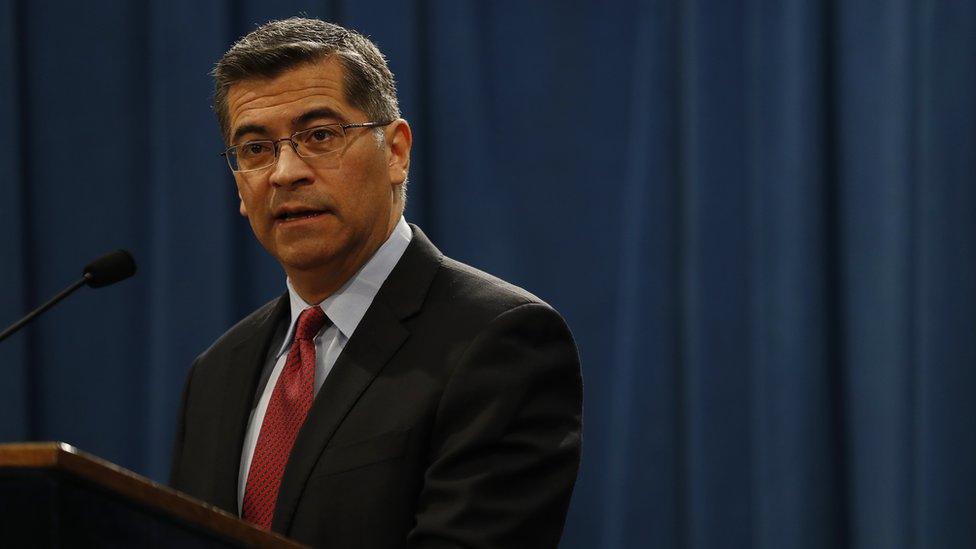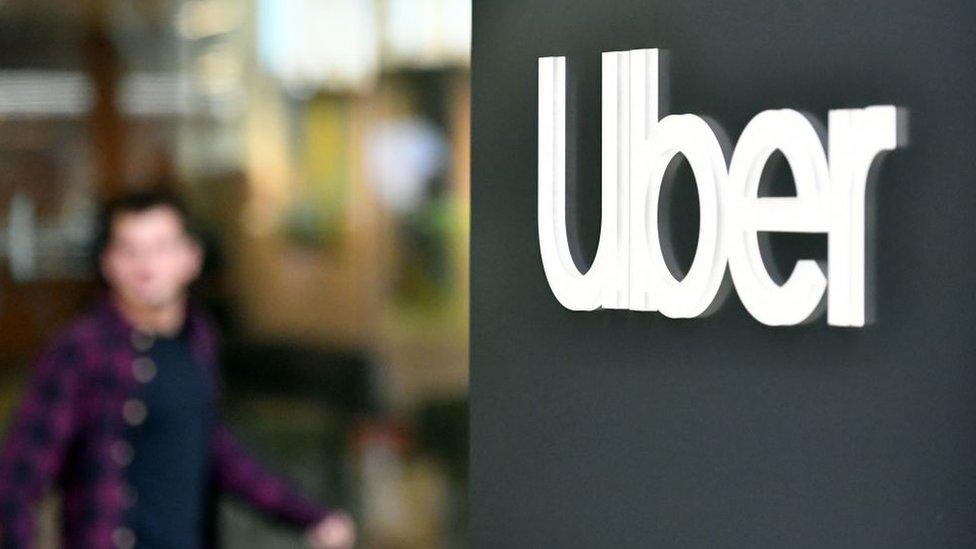Uber and Lyft sued by California, accused of denying driver benefits
- Published

California Attorney General Xavier Becerra
The state of California has sued ride-hailing firms Uber and Lyft, accusing them of denying their drivers paid sick leave and other benefits.
In the lawsuit, external, Attorney General Xavier Becerra said the companies are wrongly classifying their drivers as independent contractors, instead of employees.
The move follows the landmark law the state passed last year to clarify rules for so-called gig-workers.
Uber said it would contest the claims.
The transportation giant and smaller rival Lyft had unsuccessfully opposed California's law when it was under discussion last year, saying it would reduce flexibility valued by drivers.
The companies are now trying to win support among state voters for ballot proposal that would exempt them from the law. Uber has also challenged the law in court.
"At a time when California's economy is in crisis with four million people out of work, we need to make it easier, not harder for people to quickly start earning," Uber said in response to the lawsuit.
"We will contest this action in court while at the same time pushing to raise the standard of independent work for drivers in California, including with guaranteed minimum earnings and new benefits."
Unemployment claims
Lyft said: "We are looking forward to working with the Attorney General and mayors all across the state to bring all the benefits of California's innovation economy to as many workers as possible".
Mr Becerra was joined by city attorneys in San Francisco, San Diego and Los Angeles in filing the suit.
They are seeking $2,500 per violation - a sum likely to reach into the millions - from the firms, which they say have saved "hundreds of millions of dollars" which they would otherwise have had to pay into government programmes, such as unemployment insurance. Those programmes are now straining under a spike in claims due to the pandemic.
"Uber and Lyft are transportation companies in the business of selling rides to customers, and their drivers are the employees who provide the rides they sell," the lawsuit says. "The fact that Uber and Lyft communicate with their drivers by using an app does not suddenly strip drivers of their fundamental rights as employees."
Uber and Lyft have also pushed Congress to include their drivers in the federal government's coronavirus relief, including expanded unemployment benefits. Typically, such benefits are reserved for employers who pay into the programmes.
- Published6 December 2019
